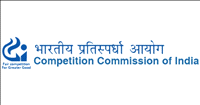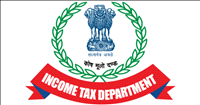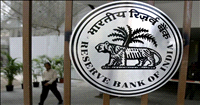Invoking the Constitution against SEBI
05 May 2006
| An IPO scam-accused financier successfully circumvents the SEBI Act that removes it from the jurisdiction of civil courts, by invoking his Constitutional right to livelihood, to obtain a stay against SEBI's interim order from the Gujarat High Court. |
After the interim stay by the Andhra Pradesh High Court on SEBI's interim order against Karvy, the Gujarat High Court yesterday granted interim stay against SEBI's order banning stockbroker Saumil A Bhavnagari — charged by SEBI as a financier in the IPO scam — from dealing in the securities market.
Interestingly, the counsel representing Bhavnagari at the Gujarat High Court is SEBI's former executive director in charge of legal affairs, Dharmishta Raval.
The final hearing of Bhavnagari's appeal is expected to come up for hearing only in June once the court reconvenes after the summer holidays. The Andhra Pradesh high court will also hear Karvy's appeal only after the holidays.
The second stay against the SEBI order has opened up the possibility of the other scam-accused also seeking relief from various other high courts. If that happens, SEBI would be embroiled in fending legal challenges in various parts of the country, thus paralysing further investigation into the IPO scam.
Jurisdiction of courts over SEBI
Under the SEBI Act, civil courts do not have any jurisdiction over orders passed by SEBI or the Securities Appellate Tribunal (SAT). Appeals against SAT orders could be filed before any high court under the earlier provisions of the SEBI Act. However, this provision was amended in 2002 and the Supreme Court was made the appellate court.
The act says, "No civil court shall have jurisdiction to entertain any suit or proceeding in respect of any matter which an adjudicating officer appointed under this Act or a Securities Appellate Tribunal constituted under this Act is empowered by or under this Act to determine and no injunction shall be granted by any court or other authority in respect of any action taken or to be taken in pursuance of any power conferred by or under this Act."
"Any person aggrieved by any decision or order of the Securities Appellate Tribunal may file an appeal to the Supreme Court within 60 days from the date of communication of the decision or order of the Securities Appellate Tribunal to him on any question of law arising out of such order."
To circumvent the SEBI Act, Bhavnagari has invoked the right to livelihood guaranteed under the Constitution. His counsel has argued that the ex-parte SEBI order has affected his "means of livelihood", which is stock broking, and hence violates the rights guaranteed under the Constitution. Any high court can intervene if any Constitutional right is denied.
Bhavnagari's counsel also argued that SEBI had not given an opportunity for responding to the allegations. SEBI's interim order was passed 'ex-parte' and had given the respondents 15 days to file their submissions, based on which the final order would be passed.
An order passed without giving an opportunity to the accused to defend himself, or without giving proper notice, can be challenged as it is against the principles of natural justice. A high court can intervene in any matter, which violates the principles of natural justice, even if the applicable legislation specifies the Supreme Court as the appellate court.
It is very likely that more and more scam-accused would resort to the same plea. The haste with which SEBI passed the interim order without completing the investigations is now boomeranging on the market regulator.
Does SEBI have a strong case?
Raval, Bhavnagari's counsel has argued that Bhavnagri was not involved in the IPO related activities of Roopalben Panchal. It is true that he acquired shares of various companies from Panchal before their listing. But these were off-market transactions prior to their listing (or the IPO grey market as it is popularly known) which is not illegal contented Raval.
Operators like Bhavnagari have not opened multiple demat accounts, but have only financed people like Panchal who opened the accounts to get large IPO allotments. All SEBI has shown so far against Bhavnagari are some off-market transactions with Panchal.
Bhavnagari received 120,500 shares of Suzlon Energy, 47,500 shares of FCS Software and 19,000 shares of Sasken Communication from Roopalben Panchal.
The IPO grey market is active, especially in Gujarat and Maharashtra, where trading starts even before the IPO bidding process starts and continues till the formal listing of the stock on the exchanges. According to some reports, the premium in the grey market has significant influence on the oversubscription levels of an IPO.
To pin down Bhavnagari and others accused of financing the scam, SEBI would have to establish a conspiracy between the financiers and key operators like Panchal. If it cannot establish such a conspiracy, SEBI has a relatively weak case against the financiers.
However, SEBI does have very strong cases against operators like Panchal and DP's like Karvy. Unfortunately, SEBI's good work in unearthing their involvement would face criticism if the courts strike down its orders against the financiers.
Options before SEBI
There were unconfirmed reports yesterday that SEBI has approached the division bench of Bombay High Court against the interim stay granted by a single bench of Andhra Pradesh High Court. According to these reports, SEBI's plea was that all appeals against SEBI orders should be filed before SAT as High Courts do not have jurisdiction over SEBI orders.
The SEBI chairman later denied these reports saying the regulator would abide by court decisions. He also denied having directed any party to file appeals only before the SAT.
SEBI can appeal before a division bench of the High Court against the single bench order, at both the Andhra Pradesh and Gujarat High Courts. If these appeals are turned down, SEBI can approach the Supreme Court.
If more such appeals are filed at different high courts and the courts entertain such appeals, SEBI can approach the Supreme Court directly.
Meanwhile, SEBI needs to complete its investigation into the IPO scam and make its case watertight at least against the main culprits. It would be a shame if the scamsters go scot-free because of the lack of investigative rigour by SEBI.
If that happens, it would undo all the good work done by SEBI over the years and destroy investor confidence in the entire process of stock market regulation in the country.






























